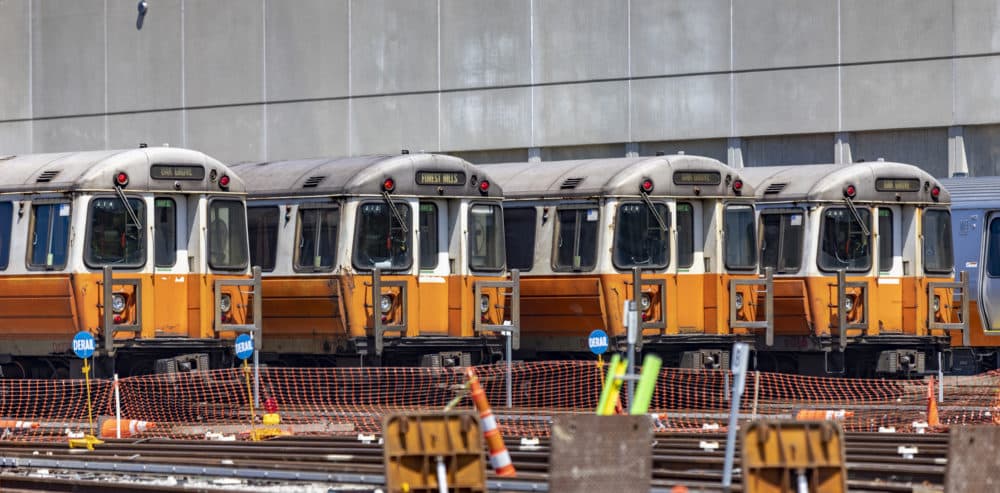Advertisement
Commentary
We know the T is broken. Why can't we make repairs easier for riders?

The MBTA is in crisis and we, the riders, are paying the price. In just the last few weeks, we’ve seen a train catch fire, massive delays, a runaway train, the announcement that the Orange Line is closing for a month, yet another delay in the opening of the new Medford branch of the Green Line Extension and the temporary closure of the recently opened Union Square branch.
With so many problems plaguing the T, the public could be forgiven for tuning out the daily negative headlines. But unfortunately, many of us who depend on public transit to get to work, school and other necessary appointments don’t have the luxury of finding another mode of transportation. The MBTA’s actions have real consequences, and there’s seemingly no end to the problems. The recently announced closures are just the latest to have terrible implications on the daily lives of riders.
The leadership at the MBTA certainly needs to take responsibility for these failures, but the blame ultimately lands on Gov. Charlie Baker’s desk. He ran on a platform of fixing the T, but the system is arguably worse today than it was when he took office eight years ago.
It’s worth looking at how we got here and what needs to happen moving forward.
Decades of deferred maintenance is the main culprit. For years, MBTA officials have kicked the can down the road when it comes to regular maintenance. The policy was to focus on putting out the biggest fires while ignoring routine maintenance. But delaying that routine maintenance has led to even more problems today.
The T is also woefully underfunded when it comes to this maintenance and capital investments. This includes everything from long-planned signal and track maintenance to the delayed delivery of new Red and Orange line cars. By saddling the MBTA with Big Dig debt years ago (a decision Baker was involved in during Gov. Weld's administration) the agency is consistently hamstrung and unable to fund necessary improvements as well as expansion projects.
Finally, there has not been nearly enough focus among leaders on making the system more resilient to the impacts of the climate crisis. More frequent floods have washed out train stations and rising seas threaten critical infrastructure. Signals have also failed during high heat or extreme cold. These issues lead to delays and shutdowns, speed restrictions causing slow trains and frustrated riders. Leaders need to focus on climate resiliency upgrades with the same urgency that they focus on safety, because these issues are directly connected.
While the Orange Line shutdown may be necessary due to long-deferred maintenance actions, the MBTA needs to do much more to make the disruption easier on riders. In the next few weeks, bus lanes need to be created to speed up travel times. Commuter rail service that serves the same stations needs to be free and run more frequently, allowing riders at Zone 1A stations — metro Boston — to ride for free. The MBTA should also look at staggering these closures, so the Green Line and Orange Line aren’t closed at the same time. These commonsense measures will have a huge impact on people who depend on the T.
In the longer term, we need to be sure leaders are held accountable, starting with Baker. The MBTA desperately needs more funding and staffing to get up-to-date on maintenance and safety issues. This must come from the legislature and state government. There also needs to be much more public transparency from our leaders, especially when it comes to safety and major projects that will impact people’s daily lives. Riders were given only two weeks' notice about the Orange Line shutdown, which is unacceptable. The riders deserve, and must have, consistent, timely and accurate information on the state of our public transit system.
Safety and maintenance projects are necessary to avoid delays and accidents. But it’s on MBTA officials to make sure this work is done in a way that does not unnecessarily burden riders. Clear communication goes a long way in helping people adjust to these inconveniences. It’s also time to dedicate the funding and staffing needed to repair our transit system today and stop kicking the can down the road.
